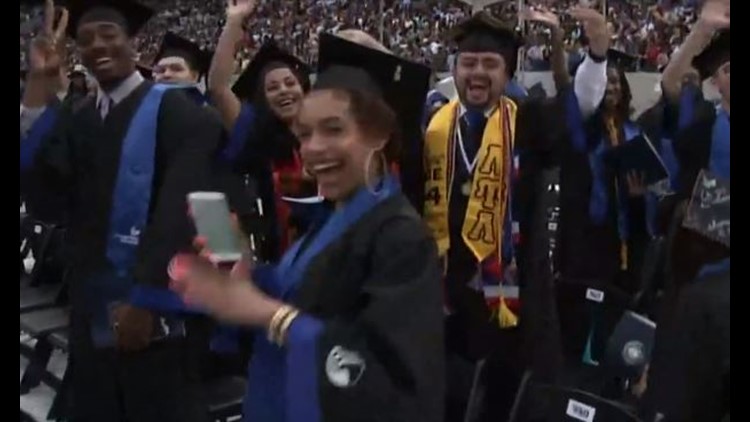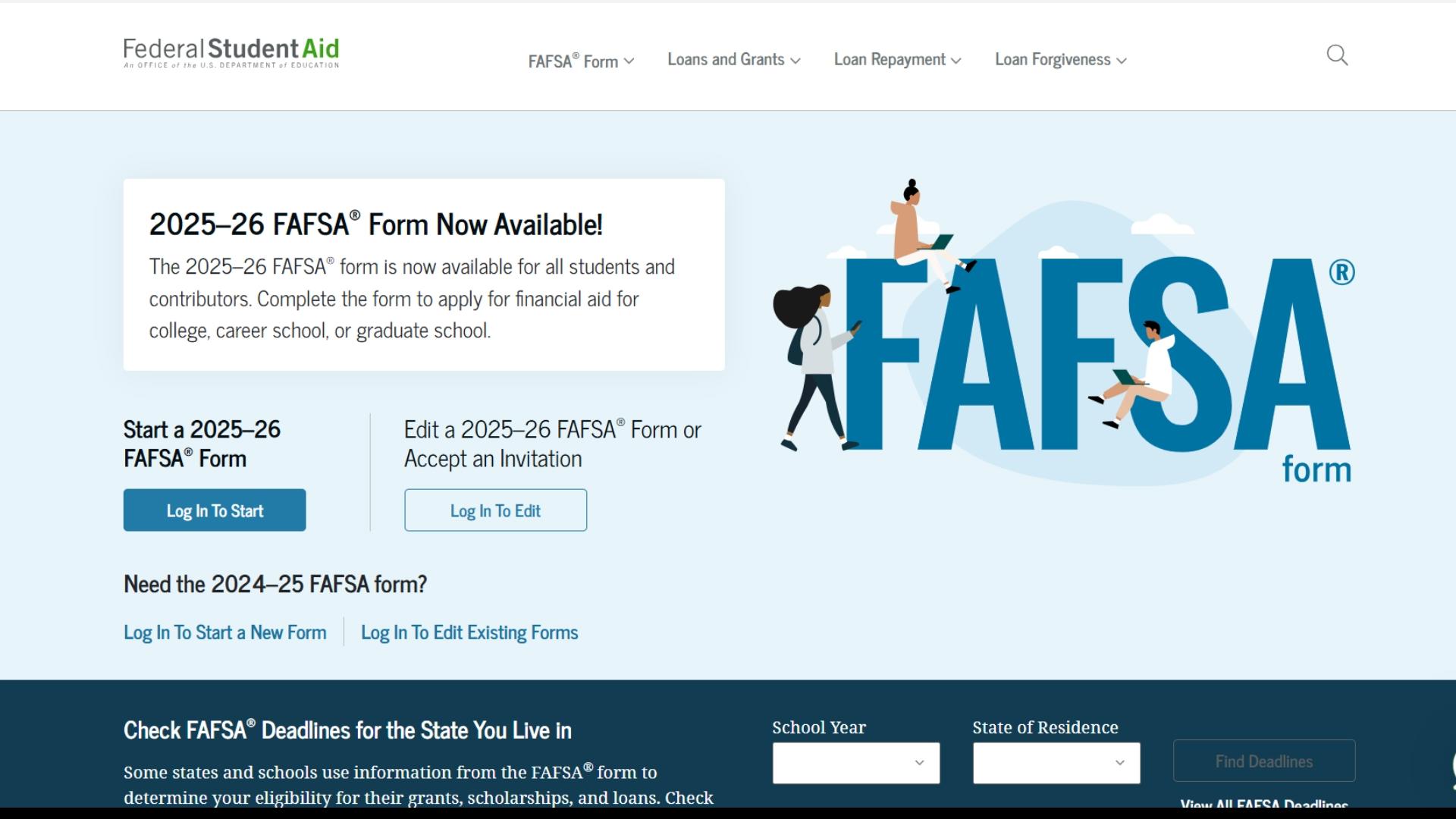ATLANTA — Georgia State University has gained some positive attention from the New York Times.
The university was the subject of an article due to its status as an "engine of social mobility" among the black community. In fact, the article states that it has awarded more bachelors degrees to African-American students in the last 5 years than any other nonprofit college or university in the country.
Following the story, Georgia State's president said that they didn't get there by focusing on any specific group.
"The magic is we’ve done everything at scale for every student. But they - meaning these new programs - most benefit students who have traditionally been less success who had higher dropout rates," President Mark Becker said. "We didn’t target specific student population but our more at-risk students have benefited to a greater extent.”
The article by Richard Fausset juxtaposes that to the state overall which, in another report, is ranked among the worst for graduating black males from high school. That information comes from a 2015 report from the Schott Foundation for Public Education.
The secret to the process, Georgia State officials explain in the story, is that they focus on finding ways to retain low-income students rather than merely enrolling them. They accomplish this in multiple ways that include identifying "academically at-risk" students and having advisors who intervene if grades begin to fall in an effort to identify the problem.
"We’re trying to figure out how to personalize higher education en-masse," Becker said. "So, with an institution of more than 50,000 students, we leverage technology to the extent that we can so that every student has the most personal possible experience."
One of those advisors - and the one who is part of the focus of the New York Times article - is Christopher Almond who started each day checking to see if any of their undergrads had tripped one of 800 alerts that might signal trouble academically.
One of the students who Almond advised was Shantil Jones who said he pushed her throughout her college career. He also sent words of encouragement - one of them she still has in her e-mail a year later.
It's that close relationship and hands-on mentality that many other colleges across the country - and even the world - are trying to emulate.
"Both South African and New Zealand on national scales have looked at what we’re doing to see whether they can roll it out across their countries," Becker said. "And here, within the United States, I think we’ve had over 200 - more like 250 - universities have visited Georgia State to see what it is we’re doing... Kick the tires so to speak and get an idea for how it works."
Among them are schools like Clark Atlanta University a historically black university that was founded decades before GSU to provide an opportunity to African American students roughly a century before state universities would offer them. And Georgia State isn't holding back offering ideas.
"The secret sauce is getting the technology and the people together," Becker said. "Giving our staff the technology they need to be able to give our students the most personal experience possible."



